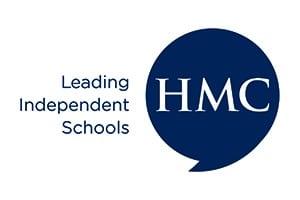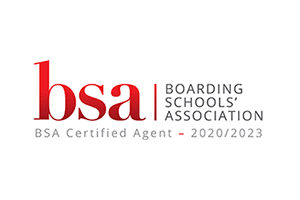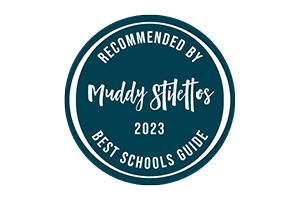Interview with an Icenian – Gerard
Gerard (Gerry) was at Langley from Year 7 until Year 13, leaving with A Levels in Economics, Business Studies, and Applied IT. We find out the impact that studying economics had on Gerard and we hear about the business that he’s been building.
 Did you know what career you wanted to follow when you were at Langley?
Did you know what career you wanted to follow when you were at Langley?
I doubt that many students could state with certainty which career they would like to pursue when they are at school – largely because school pupils have had little, if any, experience of the practical side of industry. Saying that, I knew from an early age that any career related to Science would be a no-go. That is in no way indicative of the teaching standard of Science at school, I just knew that it was of no interest to me. In terms of education, through my time at Langley I drifted towards business and my grades followed that direction in a positive way when I focused on those subjects for A Level. I knew that I wanted to run my own business but, from the many possible industries to choose, I was unsure of which area to specialise in.
Which extra-curricular activities were you involved in at Langley?
I enjoyed sports on a recreational basis during school and university. Even though I am an avid football fan and envious of the talents of professional players, I knew from an early age that I was not destined to become a professional sportsman. I played in the odd team here and there for rugby, hockey, and football at Langley, but I never took myself too seriously. I just tried to have fun at every opportunity with extra-curricular activities.
Do you think the extra activities you took part in have been useful within your career and given you transferable skills?
As I saw extra-curricular activities as an outlet from education to have fun, I did not directly gain transferable skills from those specific activities. However, I did gain some valuable insights from my peers during extra activities that helped to shape my current work ethic. During my time at Langley, there were many talented sports men and women across all age groups. Many students represented the youth teams for the likes of Leicester Tigers Rugby Club and Norwich City Football Club. Those who were best at their activity would typically be the most hard-working and dedicated individuals. It is cliché to say that hard work beats talent when talent does not work hard, but it really is true. Throughout my life at school, this cliché was re-enforced on many occasions – in both a sporting and academic sense. It should be of no surprise that those who work in a hard and smart way tend to achieve the highest grades at school. After being surrounded by many students with a dedicated and hard-working ethic, I gradually adopted this work ethic myself. This ethic has now become habitual. I am seen as a bit of a workaholic by those close to me.
What did you do at university?
I studied Business Management at the University of Leeds with a year in industry. A highlight of my time at university was submission of my dissertation, titled: “Artificial Intelligence in Financial Intermediation: An Investigation into the Prospect of Robo-Advice Developments for Independent Mortgage Brokers in the U.K.”. My findings from the project have fuelled our expansion strategy for the business.
How did your career begin?
For the first couple of years at University I was panicking about my future career. I knew that I enjoyed economics, finance, and business modules but I struggled to link them all to one specific job role. I also knew that I had a great desire to run my own business one day but I thought it was perhaps too premature to try it immediately after University. My father, who ran a small two-man financial brokerage at the time, presented the opportunity to work with him in the short-term for me to gather my thoughts about my future career. After passing the CeMAP and CeRER qualifications to professionally advise Insurance, Mortgage & Equity Release clients, I became passionate about the financial service industry and noticed a glaring opportunity to expand the business quickly across Norfolk, Suffolk, and eventually nationally.
Following a survey that we conducted of thousands of mortgage consumers, which is documented on our website, we noticed that consumers of financial products did not tend to recognise that brokers receive a commission from the lender as well as a fee from the client on completion of a mortgage transaction. Consumers felt justified in paying a large client fee (typically £500-£1,000) as they were unaware of the broker receiving another commission fee from the lender (typically between £600-£1,000). When we realised this asymmetric information in the industry, we immediately marketed ourselves as a fee-free mortgage and insurance brokerage and heavily invested in our advice process, database, client profile system, PR, SEO, etc to quickly expand. By streamlining the costs of our brokerage, despite not charging client fees, our gross profit per case is now at a similar level to those brokerages that do charge fees. Since then, now that consumers are becoming more aware of the fee structure in the industry, we have gained market share in Norfolk and Suffolk from many competitors that charge client fees.
Where are you now in your career and what have been the highlights?
Since my father took a more part-time role in the business at the start of this year, I have taken the role of Managing Partner at Boon Brokers. The brokerage has grown into a six-man team in just more than a year and we are currently recruiting for further staff to join in 2021 to cope with the increasing demand for our services. I am proud of what we have achieved in just the two years that I have been active in the business. We are now the number one most online searched local-based mortgage brokerage in Norfolk and Suffolk, with thousands of consumers viewing our website each week. As an overall business highlight, I am proud that in 2020, which has been such a turbulent year due to the pandemic, we managed to arrange more than £70m of mortgage loans.
My personal career highlight since joining the business has been the development of our bespoke database and client profile system. It has absorbed hundreds of hours of my time but, after seeing the finished product, it was well-worth it. After a heavy investment in our internal operations, I am now happy with the service level and systems that we can provide to all clients. Even though we do not charge client fees, I believe that our service is of an excellent standard.
On reflection, did your time at Langley School help inform your career choices and your attitude to your career progression?
It is fair to say that if I had not chosen my A Level subjects my career would have gone in a totally different direction. I am so glad that Langley teaches subjects like Applied Computing and Business Studies, which may be frowned upon by schools that focus solely on core subjects. I may be biased but I consider economics to be the most important subject of them all. It does surprise me that it is not a mandatory subject to study in school. Just a few economics lessons could significantly change your perspective on industrial and political matters. I reference my economics education every day when advising clients on a professional basis.
Learning those subjects helped to drive my passion for business. Studying what I was passionate about made education far more enjoyable. Regarding my attitude towards career progression, my time at Langley taught me to try and enjoy every day and maintain a positive and productive outlook, with which my career should take care of itself.
What advice would you give to students currently considering Langley, A Levels or career choices?
Enjoy your time at Langley and have fun with your friends but try not to get so distracted that you lose sight of the education on offer. It may not be considered ‘cool’ to ask questions in class or visit a teacher at break times to discuss a subject but, if you seize every learning opportunity, those marginal gains in your knowledge will be reflected in your final grades for the year. As you get older and realise the importance of education, such as at university, you will try to gain knowledge from any source available. Later in life, you will go searching for knowledge. At school, you are lucky enough to have knowledge handed to you on a plate so make the most of it while it lasts.
When choosing your A Levels have one eye on your future career. You do not want to fall into the trap of selecting subjects that lead down a narrow career path that you may not enjoy later in life. If you want to apply for further education at university after school, it is a good idea to research universities beforehand and try to find suitable degree courses on offer. If you then find a degree that sounds enjoyable, and is likely to be of benefit to your future career, select A levels that will assist with that degree. As soon as I found it, I knew that I had to study at the University of Leeds. My motivation to study at Leeds played a significant part in my success during A Levels.
Final comments
I would like to give a shout-out to my A-level teachers Mr Madgett, Mr Clark, Mr Kirkham, Mr Innes and Mr Haysom. They were all brilliant with me and pushed me to achieve my academic goals.
I also want to give my condolences to Mrs Greenhall. Her husband, a previous client and PE teacher of mine, Mr. Greenhall, sadly passed away recently. He was such a charismatic personality at Langley and will be greatly missed.

In this section:







